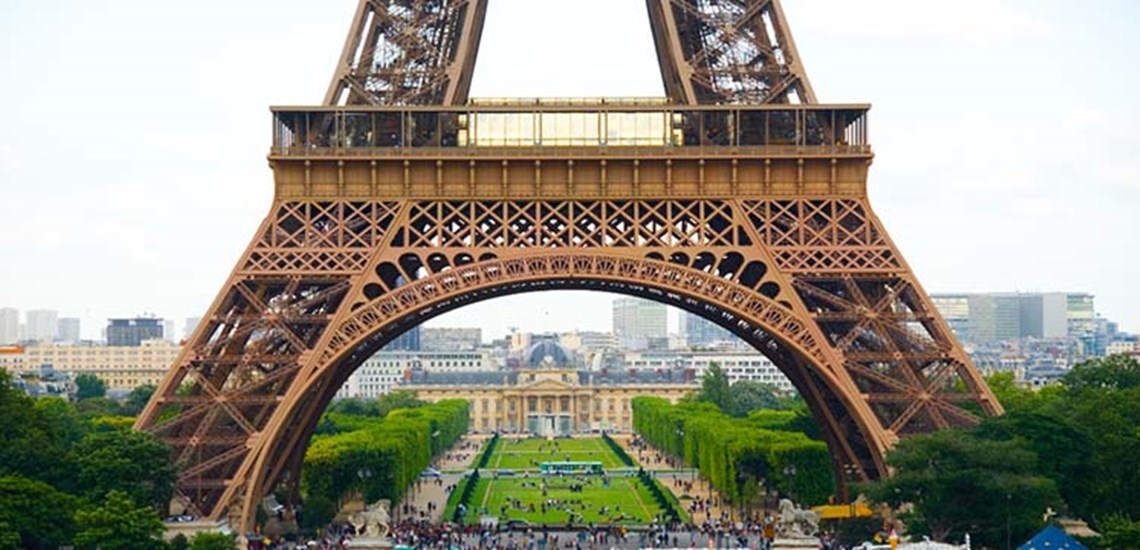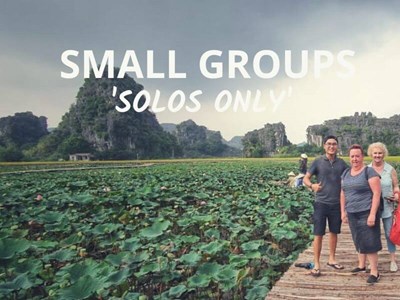France
France may very well be the first place that comes to mind when solo travellers think about Europe - and perhaps for good reason. It is, after all, officially the world’s most visited country. Awe at the Eiffel Tower, be charmed by the cafes and bistros that line the streets of Paris and lose oneself in the art and culture on offer in the country’s numerous museums.
If one were to describe what France has to offer with only one word, perhaps it’s personality. Paris is practically synonymous to “romantic getaway,” as Bordeaux is to wine, or Marseille to friendly locals. It’s a lot of culture to soak in and a lot of sights to see for one country alone. The key to enjoying your trip is not to cram too much into your itinerary. As they say, do as the Romans when in Rome—or in this case, France. Embrace the country’s generally laid-back atmosphere and aim for depth of experience rather than breadth. The next time you visit, the Alps will still welcome you and your skis; Mona Lisa will still be smiling her enigmatic smile in the Louvre; and the Palace of Versailles will still be as magnificent and as crowded as over. And finally, of course, glorious French cuisine will continue being served across the country’s numerous restaurants and cafes, as it has been for centuries.
- Location: France, Europe
- Size: 674,843 km2
- Capital: Paris
- Largest Cities: Paris, Lyon, Marseille, Toulouse, Nice
- Climate: French weather varies from region to region, though the country’s climate, as a general rule, is temperate save for its mountainous regions. Most tourists agree that spring (April to June) is the best time of year to visit the country, though any time of the year is really a good time to be in France.
- Population: Over 65 million people
Language: French
Religion: Catholicism, Agnosticism and Atheism, no religious affiliation, Islam
Literacy Rate: 99%
Government Type: Constitutional republic
Head of State: President of the Republic
Land Borders: To the southwest, Spain and Andorra; from the southeast to the northeast, Monaco, Italy, Switzerland, Germany, Luxembourg, and Belgium; other land boundaries by way of overseas regions and territories
- Currency: Euro
- Natural Resources: Coal, iron ore, bauxite, zinc, uranium
- Main Agriculture: Wheat, cereals, sugar beets, potatoes, wine grapes, dairy products
- Main Industry: Machinery, chemicals, automobiles and aircraft, metallurgy
- Electricity: 230 V AC, 50 Hz
- Time Zone: GMT+1, GMT+2 (summer)
Country Tel. Code: + 33
- Visa/Passport: The Schengen Zone’s 90-day visa waiver program allows Australian passport holders to enter the country without a visa. This is under the condition that visitors will not stay within the entire Schengen Zone for more than 90 days over a six-month period. Otherwise, a visa must be obtained prior to departure from Australia.
- Airport: By far the largest and busiest airport in the country is the Paris Charles de Gaulle Airport (CDG), which is 25 kilometres northeast of the capital. There are around 475 airports in France; major international airports can be found in Nice, Lyon, Marseille, and Toulouse.
- Departure Tax: Embarkation tax is usually included in the passenger’s airfare.
- Getting Around: Travelling between major cities is fairly convenient given the impressive state-run rail network. Most routes start from Paris, and travel in between provincial towns tend to be infrequent. In terms of regional travelling, bus options are somewhat limited; renting a vehicle may be a less constraining choice if one plans to visit remote parts of the country.
- Credit Cards: Foreign credit cards are accepted in France, though not universally. Visitors are advised to use a combination of cash, credit card, and traveller’s cheques when visiting the country. Visa and MasterCard are more commonly accepted; American Express and Discover are not.
- Drinking: The minimum drinking age is 16, though this is not always implemented. Drinking and driving is strictly prohibited, however.
- Shopping: There are probably far more items worth buying in France than there is space in your luggage. In terms of food alone, there’s mustard, chocolates, honey, wine, cheese, and macarons. More fashion-minded travellers are spoilt for choice—designer bags, scarves, and designer shoes abound and range from the reasonably priced to little luxuries. Perhaps the only thing that benefits from luggage limitations is your pocketbook—but then again, you’ll want a good excuse to come back to this much-loved European nation.
- Tipping: Bills should be inclusive of tips, but it is still customary to leave additional change.
100% Australian; we 'get' the Australian travel style. And, better still, our arms are open to welcome our friends from other countries around the world, who'd like to travel with friendly Aussies.©
We've been creating and delivering the best ever holidays for solo travellers since 2006. As a boutique tour operator, we delight in detail, delivering personal service and finding your next best memory.©

